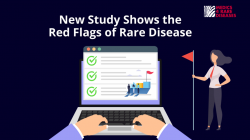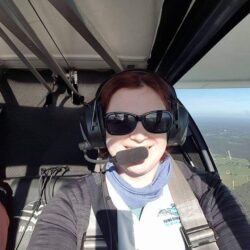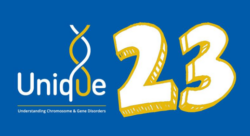Working together to share our message #DareToThinkRare
We believe that asking doctors to #DareToThinkRare is fundamental to improving the experience of all patients living with rare diseases. And to eliminating the diagnostic odyssey. Working together to share our message with patients, patient advocates and patient groups will enable us to achieve this.
Working together to share the ‘real’ patient experience?
Patients can share their stories and experiences by writing a blog or being interviewed by our CEO or an ambassador. Articles on our news feed include: spinal muscular atrophy, small vessel vasculitis and kawasaki disease to name but a few!
Each year at our annual symposium ‘The Unusual Suspects’ we invite a patient advocate to come along to educate our medical audience by sharing their story and experience.
Our events area is a great place to promote any events suitable for a medical audience.
Use our online resources directory to promote your e-learning tools for healthcare professionals and to share your videos. Simply create an account by choosing a username and entering your details, email address and password to register. You’ll then receive an email with instructions on how to log in to your account. Once you’re in, select ‘patient group’ from the category and you can go ahead and list your details.
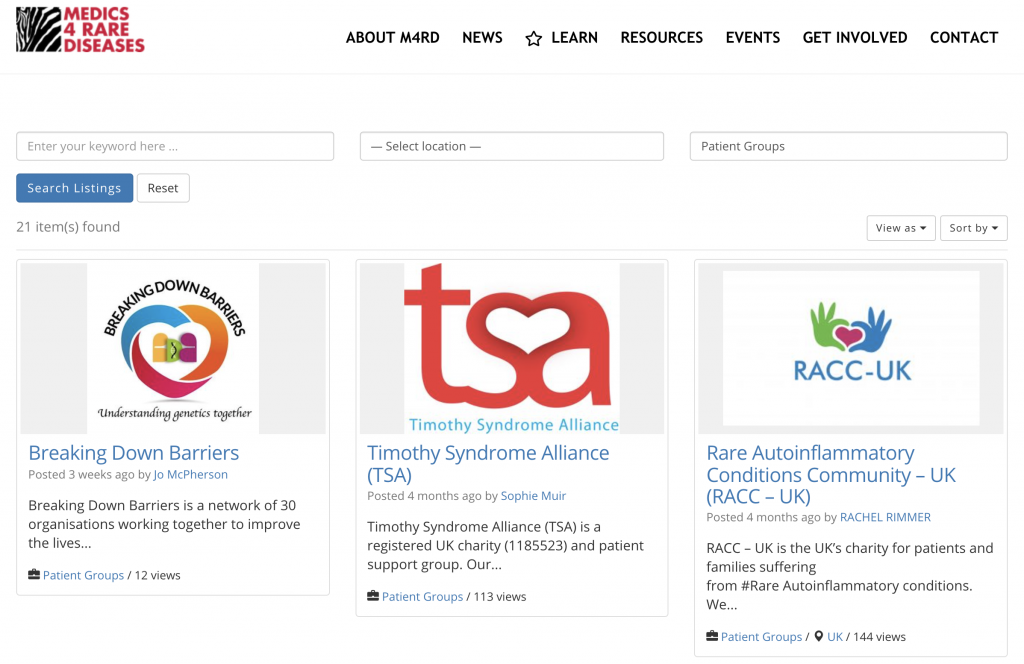
Using Mystery Disease Monday to shine the spotlight on your rare condition
#MDM is a great way for medics to learn about rare conditions from those who understand them the best – patients and patient groups. We add bite-sized information to our Insta story throughout the day with posts that have a clinical focus. These include information about signs, symptoms and diagnosis. We also links to patient support groups.
All you need to do is provide us with the facts and images that you’d like us to share. Use this form and we’ll do the rest! You can see previous examples of #MDM by viewing the highlights on our Instagram page.
Rare Disease 101
RD101 would not be here without the rare disease community who are so generous with sharing their personal stories and expertise. Our module includes or signposts to as many stories, examples, tools, websites, knowledge sources and images from the wonderful rare disease world. If you would like to contribute to the development of existing or future lessons, do get in touch with lucy@m4rd.org.
Patient group pairing
Each year we work with Findacure on the Student Voice Prize. The patient group pairing scheme gives medical students, nurses and biological sciences undergraduates and masters students the chance to be paired with a rare disease patient group. This way they can learn first-hand about the condition and patient experience. The scheme benefits patient groups because it allows them to share their stories and experiences with a doctor, nurse or scientist of tomorrow who may never have considered working with rare disease before.
Read how one medical student learned to #DareToThinkRare.
Supporting patient group projects
In 2020 we supported the Bardet-Biedl Syndrome patient group to find medical students to help develop a disease-specific patient registry and we also worked with The CSF Leak Association to help promote their bursary scheme. The scheme supported a UK-based junior doctor to attend a symposium in LA in 2020.
The Childhood Tumour Trust approached us in 2019 to support their search for two doctors to attend an international conference in San Francisco and the successful candidates also joined their medical board as voluntary medical advisors.
Working together to raise the patient voice
We are currently collaborating with Rare QoL to promote their #WhoseVoice campaign. In May 2021 we hosted a meeting with NHS England and NHS Improvement to help raise up the voices of underrepresented voices within the rare disease community.
M4RD conducted its Red Flags Survey to find out what different rare diseases have in common during the time before diagnosis and we asked UK rare disease patient groups for a general collective picture of the average patient journey. 81 different rare conditions are represented in the first part of the survey data analysis; this is presented in our Red Flags Road Map (below). We are hoping to publish our full findings in a medical journal later this year.
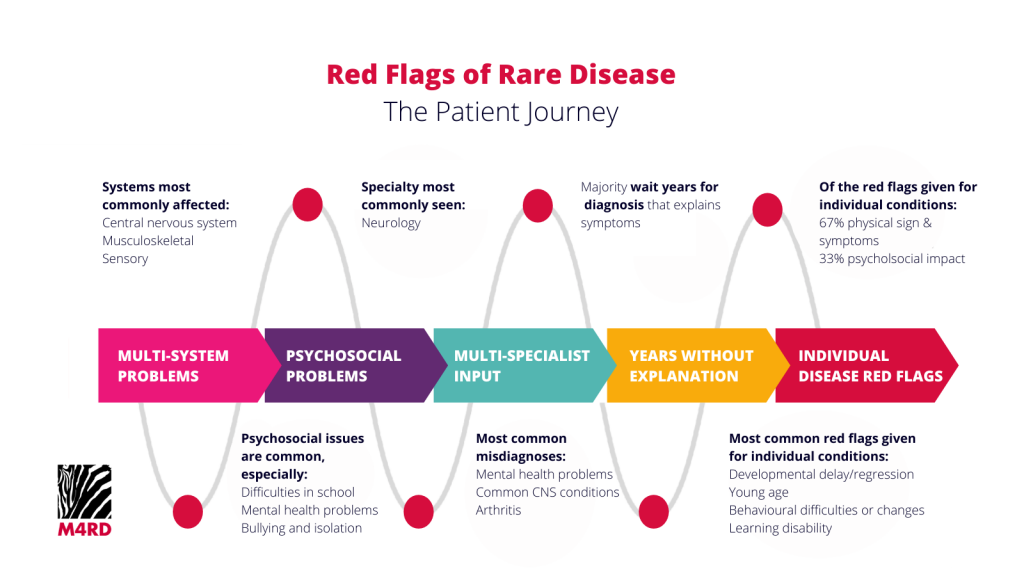
If you’d like to work with M4RD to spread the #DareToThinkRare message to educate medics, medical students and trainee GPs then email Jo McPherson: jo@m4rd.org


